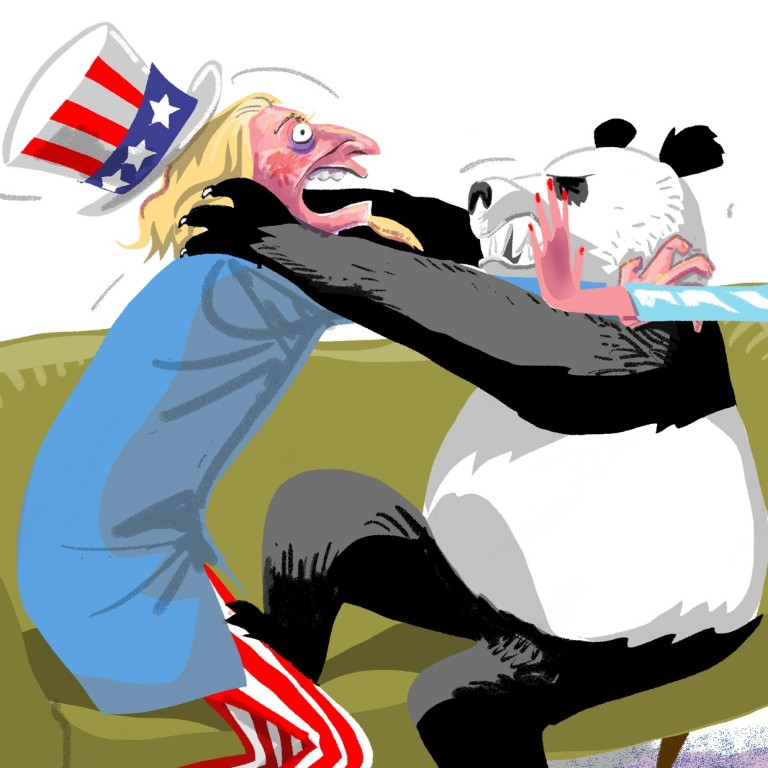
Washington should stop shooting its mouth off about Hong Kong, when even Donald Trump is being sensible
- The chaos in Hong Kong comes as the US-China relationship wanders into dangerous territory. It is now believed in Washington that Beijing can do no right because the Communist Party can only do wrong
Back in the British colonial masters’ days in the sun, they had granted the inhabitants of Hong Kong no more democracy or proper representation than they had other colonies. Today’s pathetic complaints from British MPs in London about Beijing’s rough handling of their former possession are therefore more of a joke than a Mr Bean comedy routine.
The agonising, tragic polarisation of Hong Kong comes as the relationship between China and the US becomes a mess. It is now believed in Washington and New York that Beijing can do no right because the Communist Party can only do wrong. More subtle alternative analyses are now practically treated as treason.
Both sides doing their bit to destroy Hong Kong
Both sides must accept the world they are stuck with. The US should bring back not only the Kissinger formulation but also the Clinton-era policy of aggressive engagement. Rather than pick fights it cannot win – or afford to finance, or much less afford to lose – the US should relate to China by spurning no sensible compromise and using mutual insincerity as a necessary solvent of tight spots.
America’s “nattering nabobs of negativity” (to steal a phrase from Spiro Agnew) and China’s pure-as-the-driven-snow leftists need to be watched for the war hawks they are. On both sides, dangerous insanity lurks.
Two months on, what do Hong Kong protesters really want?
If we insist on having things all our own way, then we had better be prepared to risk a doomsday war with China. That’s such an idiotic option in this nuclear age, you might need a session with an anger management therapist if that’s how you want to go.
The goal is not for America to become more communist or for China to become more American. The endgame is to have no end to the game at all – but instead to develop a perennial, multilevel process of bilateral political interaction that brackets out brinkmanship. America and China have to find a solution to what Kissinger recently termed “the key problem of our time”.
To this end, a teachable moment for international relations hit me while I was leaving a movie theatre the other day. For your consideration: The Farewell , just released.
Directed by Beijing-born, Los Angeles-based Lulu Wang and featuring Asian-American rapper Awkwafina (sedated among a top-notch Asian cast), the film posits that while there can be a valid American way of doing something, there can be a different but equally valid Chinese way of doing the same thing.
A better US-China relationship might have helped avert this ongoing tragedy which, for all we know, might be a precursor to a larger tragedy yet. For sure, the bilateral relationship could benefit dramatically from much more astute direction and perhaps, like The Farewell, offer a surprisingly positive ending.
University professor Tom Plate’s latest book on US-China relations is titled Yo-Yo Diplomacy

